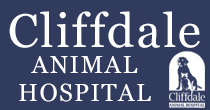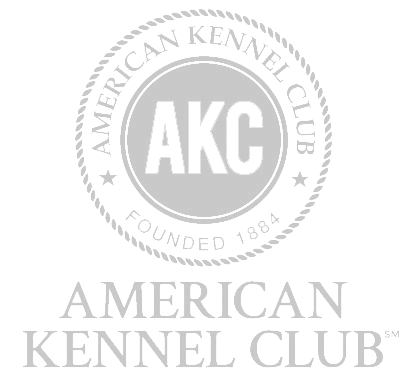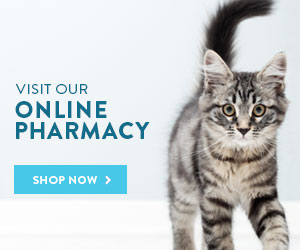The Importance of Dental Hygiene in Pets: A Comprehensive Guide

In the world of pet care, dental hygiene often flies under the radar, overshadowed by more immediate concerns like diet and exercise. However, maintaining your pet's dental health is as crucial as any other aspect of their care. Neglecting dental hygiene can lead to serious health issues, affecting the mouth and potentially leading to complications with vital organs. This guide will delve into why dental hygiene is essential for pets, the consequences of neglect, and practical steps you can take to ensure your furry friend stays happy and healthy.
Understanding the Significance of Pet Dental Care
Dental health is a vital part of your pet's overall well-being. Like humans, pets can suffer from dental problems like plaque buildup, gum disease, and tooth loss. These issues can lead to more severe health problems, including infections that may affect major organs and significantly impact the quality of life and longevity of your beloved companion.
The Risks of Poor Dental Hygiene in Pets
Poor dental hygiene in pets can lead to periodontal disease, the most common dental condition in dogs and cats. By age three, most pets show signs of this disease, which only worsens with time if left untreated. The progression of periodontal disease can lead to:
- Tooth loss
- Severe pain
- Infections that can spread to the bloodstream and vital organs
- Potential links to systemic issues such as heart disease
Preventive Measures in your Pets Dental Hygiene: A Proactive Approach
- Regular Brushing: Brushing your pet's teeth is the cornerstone of dental hygiene. It might sound challenging, but it can become part of your daily routine with patience and the right approach. Use toothpaste formulated for pets to avoid toxic ingredients in human toothpaste. Initiating this practice early in your pet's life can make the process much smoother, but it's never too late to start.
- Professional Dental Cleanings: Just as humans need regular dental check-ups, pets require professional cleanings to maintain oral health. A veterinarian should perform these and include a thorough cleaning, often under anesthesia, to examine the teeth and gums closely, remove plaque and tartar, and address any potential issues.
- Diet and Dental Products: Feeding your pet a balanced diet can aid their dental health. Some pet foods are specially formulated to help reduce plaque and tartar buildup. Dental chews, toys, and water additives are also beneficial in keeping your pet's teeth clean and healthy between brushings.
Recognizing Dental Health Problems in your Pets
Early detection of dental problems can prevent severe health issues and save your pet from unnecessary pain. Signs that your pet may have dental problems include:
- Persistent bad breath
- Difficulty chewing or loss of appetite
- Red, swollen, or bleeding gums
- Visible tartar on the teeth
- Loose or missing teeth
If you notice any of these symptoms, it's crucial to consult your veterinarian as soon as possible.
The Role of Veterinarians in Dental Maintenance
Veterinarians play a crucial role in maintaining your pet's dental health. During a dental check-up, they can comprehensively evaluate your pet's mouth, recommend professional cleaning if necessary, and offer guidance on home dental care practices. Remember, prevention is always better than cure, so regular vet visits are essential.
Establishing a Dental Hygiene Routine at Home
Here are some steps to establish a dental care routine for your pets:
- Start Early: Introduce dental care early in your pet's life to familiarize them with the process.
Choose the Right Tools: Use a pet-specific toothbrush and toothpaste. Human products can be harmful to pets. - Be Gentle and Patient: Start slowly and gradually increase the duration of brushing sessions as your pet becomes more comfortable.
- Incorporate Dental Toys and Treats: These can help reduce plaque and tartar buildup and make dental care more enjoyable for your pet.
The Bottom Line
Dental health is crucial to your pet's overall health and well-being. By taking proactive steps towards maintaining your pet's dental hygiene, you can prevent the onset of dental diseases and ensure your pet leads a longer, healthier life.
At Cliffdale Animal Hospital, we understand the importance of comprehensive pet care, including dental health. Our team of experts is dedicated to providing the highest quality dental care for your pets, from routine cleanings to more complex dental procedures. We're here to help you every step of the way, ensuring your pet's smile stays bright and healthy for years to come.
We invite you to explore more about our dental services and the wide range of other pet care services we offer. Visit us at Cliffdale Animal Hospital for valuable pet care tips, to schedule an appointment, or to learn more about how we can support your pet's health and happiness.
Remember, when it comes to your pet's health, prevention is key. Schedule your pet's dental check-up today and take the first step towards a healthier, happier pet.
Cliffdale Animal Hospital
6416 Brookstone Lane
Fayetteville, NC 28314
910.487.5013
cliffdaleanimalhospital@gmail.com
COPYRIGHT © 1990 - 2023 CLIFFDALE ANIMAL HOSPITAL | POWERED BY PRINT AND WEB DESIGNER






